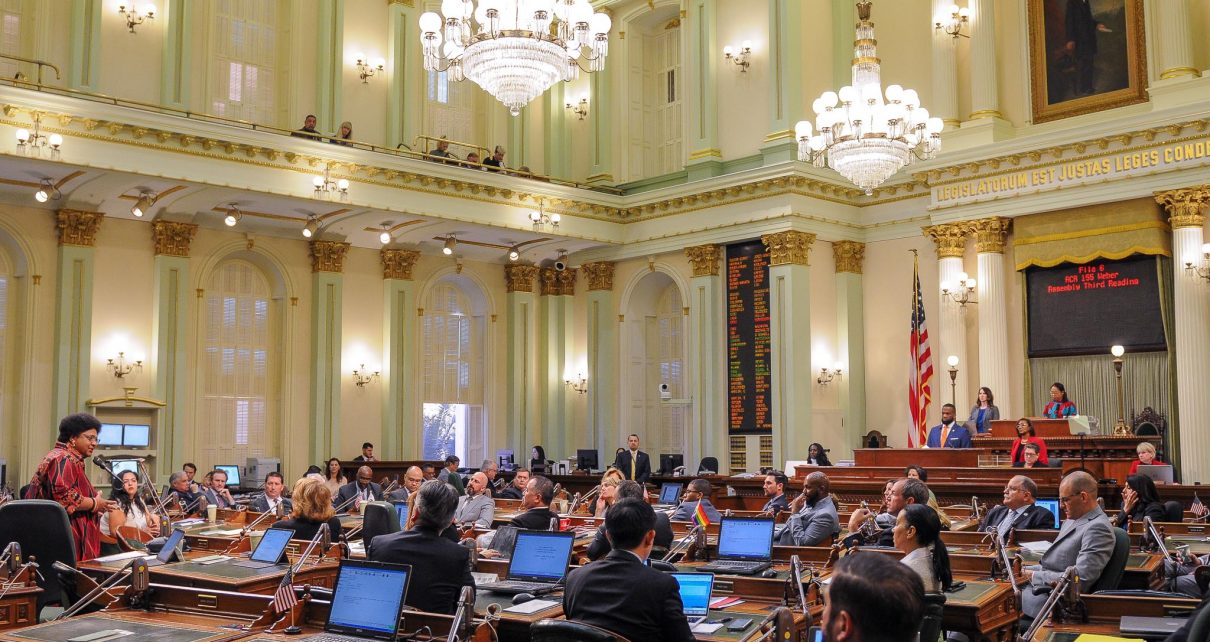
California State Assembly in Session. (Photo: Kevin Sanders for California Globe)
Are Legislative Findings in Children and Youth Behavioral Health Initiative Act Bills Necessary?
AB 1479 ensures pupil behavioral health benefits would also be available for undocumented immigrants in this state
By Chris Micheli, October 20, 2023 8:01 am
The California Legislature sent to the Governor at the end of the 2023 Legislative Session a measure, Assembly Bill 1479, which dealt with pupil health and social-emotional, behavioral, and mental health supports. Governor Newsom vetoed the bill due to budgetary concerns. What caught my eye in reading the bill was the following plus section:
The Legislature finds and declares that this act is consistent with, and furthers the intent of, the Children and Youth Behavioral Health Initiative Act (Chapter 2 (commencing with Section 5961) of Part 7 of Division 5 of the Welfare and Institutions Code)
Why was this provision necessary? This Act is not a statutory initiative enacted by the voters, which is almost always the reason for such a legislative finding and declaration being necessary in a bill that amends a voter-approved initiative. Moreover, AB 1479 proposed to add an article to the Education Code related to pupil health. So, why reference the above Act that is contained in the Welfare and Institutions Code?
Specifically, Welfare and Institutions Code Division 5, Part 7 was added by the Statutes of 2021, Chapter 143. Part 7 is titled, “Behavioral Health Services and Supports.” Chapter 143 also added Chapter 2 to part 7, which is titled, “Children and youth behavioral health initiative act.” AB 133, which is Chapter 143, was authored by the Assembly Committee on Budget and AB 133 was a budget trailer bill. Section 5961(a) provides: “This chapter shall be known, and may be cited, as the Children and Youth Behavioral Health Initiative Act.”
The initiative is intended to transform California’s behavioral health system into an innovative ecosystem in which all children and youth 25 years of age and younger, regardless of payer, are screened, supported, and served for emerging and existing behavioral health needs. The initiative requires an appropriation by the Legislature for this purpose, and the initiative is required to include specified components.
In addition, Section 5961(h) states: “The Legislature finds and declares that this chapter is a state law within the meaning of Section 1621(d) of Title 8 of the United States Code.” Federal law governs immigration. Under 8 U.S.C. 1261(d), “a State may provide that an alien who is not lawfully present in the United States is eligible for any State or local public benefit for which such alien would otherwise be ineligible under subsection (a) of this section only through the enactment of a State law after August 22, 1996, which affirmatively provides for such eligibility.”
As a result, AB 133 was enacted to satisfy and properly interpret 8 U.S.C. Section 1621, which generally restricts undocumented immigrants’ ability to receive public benefits, unless a state statute provides otherwise. AB 1479 apparently contained the above finding and declaration to ensure that these pupil behavioral health benefits would also be available for undocumented immigrants in this state.
- Legislative Intent Does Not Equate to a Mandate - April 27, 2024
- Frequently Asked Questions about State Agency Ethics Training - April 26, 2024
- Frequently Asked Questions about When Elected Officials Take Office - April 25, 2024




